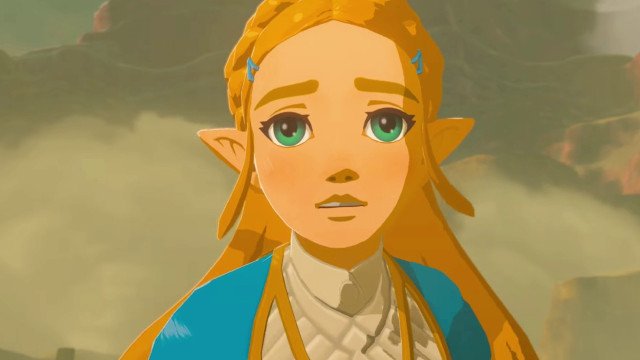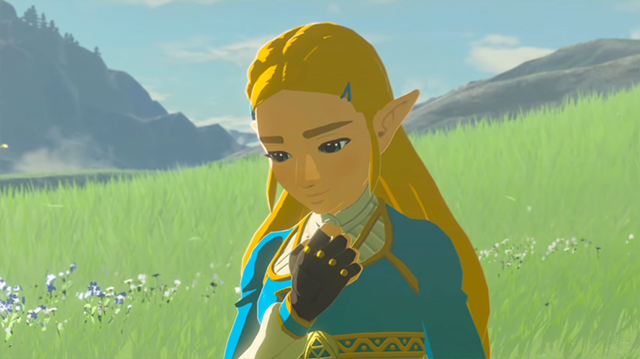There have been more Zelda games than Call of Duty games, which is saying something. And while the title might be confusing for anyone new to the series, the simple fact is Zelda has never been the star of her own game. Zelda games have an impossibly deep lore, with alternate timelines and huge reincarnated cycles of prosperity and destruction. They tell the stories of heroes of wisdom, courage and power and their eternal fight for the future of an everchanging land. Zelda always plays an important role in these struggles as the personification of wisdom, but she has never been the hero who saves the day. It’s time that changed.
You can play Zelda in other games. Super Smash Bros. has both Zelda and her alter-ego Sheik playable in the game, but she has never been the star of the game series named after her. Instead she is both the support role and the ultimate prize for the player. Zelda, like Mario‘s Princess Peach was one of the original princesses that needed saving. Although games like Ocarina of Time and Wind Waker both gave her some agency and ability, it was always up to Link to rescue her in the end.
Vladimir Propp developed classifications for different characters in ancient and modern stories. From the hero that audience roots for, to the villain they overcome and the sidekick who helps them along the way, Propp found a way of categorizing more or less every character you’ll see in any story, including the princess. She was normally both the hero’s goal and reward and nearly always the reason the quest began and what the hero was fighting for.
Video games took perhaps a too literal look at Propp’s narrative structure when they first began creating stories. Zelda was the princess, and therefore needed saving and the same applied to Peach.
Silent Princess

Although games have tried breaking from the format for generations, the games industry of today have begun telling nuanced and complex stories in engaging, mature ways. The types of games range from the emergent stories from games like Player Unknowns Battlegrounds to the emotional voyages of games like Life is Strange, The Last of Us, and even the latest God of War.
And it is time that The Legend of Zelda evolved as well. Breath of the Wild was a complete departure from the normal mechanics of a Zelda game. It redefined the open-world genre and was universally celebrated for its overt and subtle innovation. Even the Link’s famously green tunic was ditched for something new. Now the series should look to overhaul the story in a similar way.
But that doesn’t mean it has to break its lore to do so. The Zelda series revolves around three constantly reincarnating archetypes: the hero, the villain, and the princess where were usually Link, Ganon, and Zelda, respectively. Something would have to happen to Link , but it doesn’t have to be his removal from the game. Perhaps Ganon could trigger Links early reincarnation before fully returning. By the time Ganon returns at full strength, Link is too old or wounded to take up the Master Sword. Instead, he must teach and aid Zelda to defend herself, knowing that no one else can stand against the eternal threat that is Ganon.
Propp’s narrative structure also includes a mentor, someone who assists and directs the hero on their quest. It’s a role that we see filled by several characters in the Zelda series. Occasionally, we even see it fulfilled by the dark shadow of the hero Link, so it would not be to far-fetched for Link to take the mantle for a game or two.
The Hero of Our Time

Obviously, this isn’t the only possibility for a reimagined story for Zelda, nor will putting her in the starring role be the only thing that needs to be updated. One Twitter user suggested that all Zelda stories are retellings of the same legend in a world we never truly see. This would make an immediately interesting and easy way to reimagine the various roles found in most every Zelda game. However, Nintendo is full of intelligent people who can think of other ways to further bend the series to support Zelda.
A lot of games in recent years have started to allow support characters to take the reigns. The Last of Us has moved away from a parental relationship for The Last of Us II, and Bioshock: Infinite‘s Elizabeth became the start of the DLC stories. Both these characters could easily fit into Propp’s Princess category but the latter is perhaps the most relevant example as both Bioshock and Zelda revolve around a repeating, slightly different story.
Breath of the Wild and Mario Odyssey showed us just how much creative energy Nintendo has left in some of its biggest and oldest franchises. It’s about time that Nintendo applied that craft to renovating some of video games most tired old tropes. The princess doesn’t always have to be in another castle but she can now maybe make the journey there herself.







